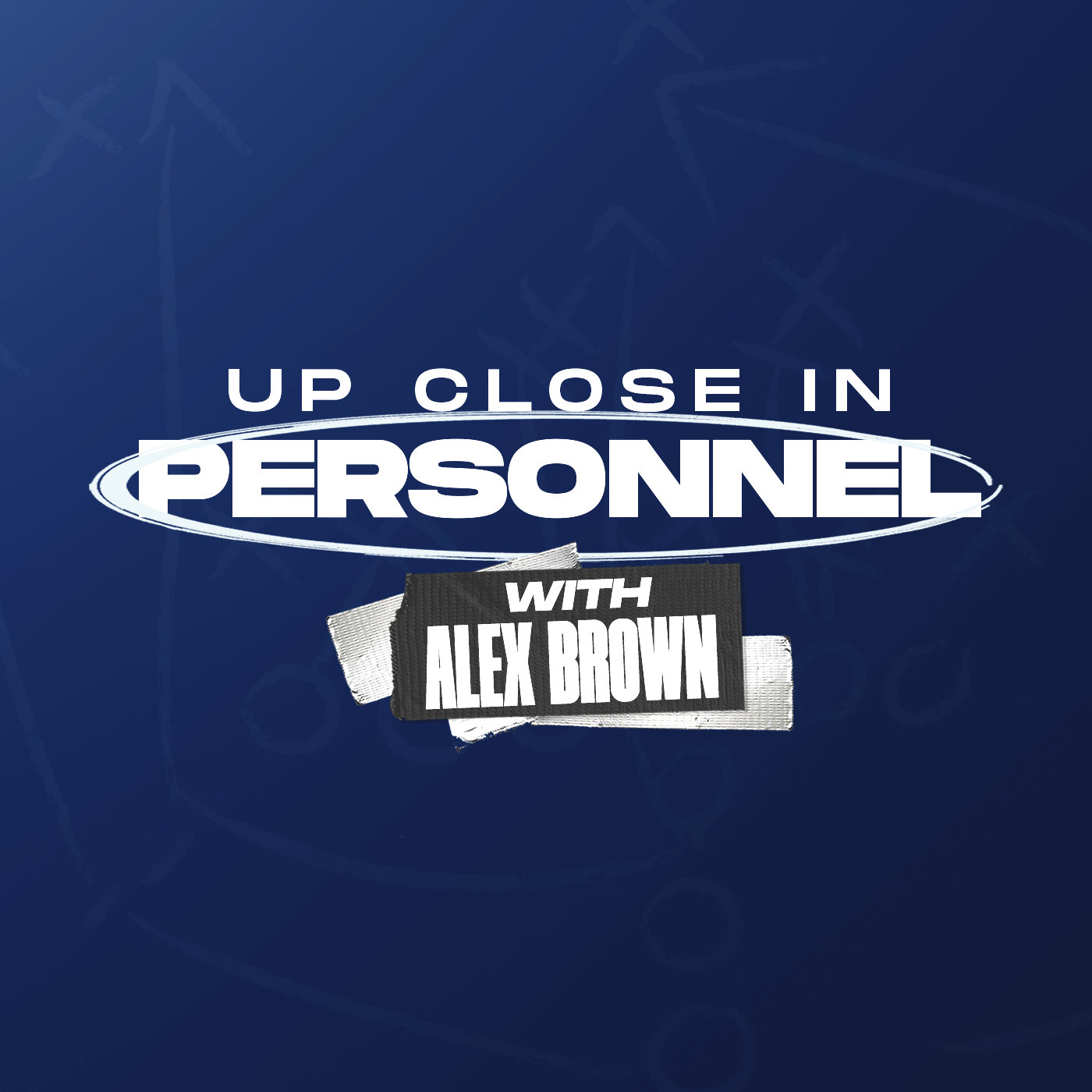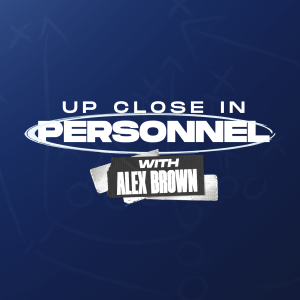
28K
Downloads
57
Episodes
The recruiting process can be a daunting challenge and difficult experience for recruits, their parents and their coaches. In this show, it is our goal to flip that script, to peel back the curtain and empower recruits with insider information to create more transparency in an increasingly cloudy environment. Hosted by Director of Recruiting at Rice University, Alex Brown, Up Close in Personnel will be inviting other industry expert's from across the country to cover all topics involving recruiting and the evaluation process.
Episodes

Saturday May 08, 2021
Saturday May 08, 2021
With the 2021 NFL Draft in the books, I decided to get my good friend - Matt Waldman on the show to discuss his process as an evaluator and how he's developed his craft in scouting.
Whether you're working at the high school, college or pro levels of football, we all must be able to identify, evaluate and project talent to an extent.
Matt, a former aspiring musician, writer and call center director, put the lessons he learned in the real world into practice and taught himself over the past 20+ years on how to assess NFL Draft talent.
Creator of the Rookie Scouting Portfolio, Matt turns out the most comprehensive publication of NFL prospect analysis at all skill positions. Targeting fantasy footballers at the start, Matt's grown into one of the more respected evaluators in the NFL Draft sphere and I have a ton of respect for the work he does. If you have interest in checking out this year's post-draft edition of the RSP, click here for details.
As for the episode, we went deep into the weeds on developing a personal process for film watching, how we take notes, writing reports on players, self-evaluating previous misses, what compensating factors look like for prospects, defining the "IT Factor" and so much more in the episode.
What jumped out to me on this conversation was Matt's desire to accomplish two things in his scouting process:
- Define everything:
- When you define EVERYTHING that you evaluate and what you are seeing, you create consistency in communication across the organization. From the grading scale, to the traits, to how you define different levels of talent, you've got to be on the same page as an organization on "how you want to build it".
- Constantly evaluate hits and misses, and ask the difficult "why" questions. If you can't answer those, then it's time to reassess your process. The "what am I missing" mentality is critical to self improvement as a scout.
Also in the episode, you get a glimpse into Matt's personal growth and how he was able to teach himself over time how to scout. The quick bullet points for anyone wanting to grow as a talent evaluator:
- Watch as much film as possible: Matt described it as a game of "eye spy" early on
- When you come across things you don't know, seek the info: books, clinics, conversations, etc.
- Revisit your previous evaluations, see what you missed ("what am I missing" mindset)
- Be humble and open minded to learn from other evaluators that see it differently
The inflection point of missing on Dak Prescott's evaluation, might have been my favorite part of the show as Matt detailed his process, what he saw initially in Dak, how he grades traits in draft prospects and where he went wrong. The sign of a good scout is the awareness to know when you missed and learning from that mistake, and Matt breaks it all down for us.
Another great nugget of scouting wisdom, was Matt's description of compensatory factors and what he calls "winning combinations". There's more than one way to skin a cat, whereas one player may have a "breadth of talent" (wide range of solid skills) and another may have a "depth of talent" (limited range of excellent skill). This part of the show really goes to show that scouting is not an "inexact science", but rather a craft that includes a blend of both art and science.
In detailing that art and science, Matt uses the analogies of a chef and baker to breakdown two types of athletes: task oriented and creative. A baker locks into a process, follows every step to the "T" and requires the right environment, while a chef has the ability to work off schedule and improvise.
Listen to this one and I'm sure you'll have even more notes from this conversation. If you're obsessed with learning about the player evaluation process, this episode will be right down your alley. Hope you enjoyed it and see you all next week!
Be sure to follow Matt on Twitter at @MattWaldman, and don't forget to visit UpCloseInPersonnel.com for full show notes on all of our previous recordings!

No comments yet. Be the first to say something!